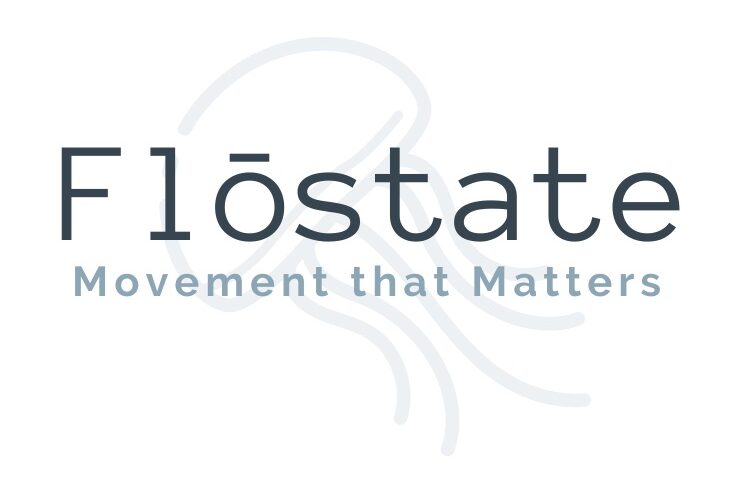Feeling stressed out? Well, join the club. According to The American Institute of Stress:
- 77 percent of people experience stress that affects their physical health
- 73 percent of people have stress that impacts their mental health
- 48 percent of people have trouble sleeping because of stress
Unfortunately, for nearly half of Americans, stress levels are getting worse – not better.
Stress is like quicksand…slowly drawing us down, and by the time we realize it, it’s almost pulled us under. However, once armed with a greater understanding of why we “stress out”, you can take back some control and proactively reduce your stress. And it doesn’t have to be complicated or costly.
5 quick tips on how to Stress Less and find more calm and joy
Move
It’s no surprise that movement and exercise make us feel better. But why is it so hard to do it? Stress causes people to feel tired, agitated, unmotivated, sad, tense and can even cause acid reflux and other GI issues. Know that if you are feeling stressed and unhappy, movement can help you break free from that feeling and “reset” your system. Some days just stretching is all we have the energy to do. Other days, we may be ready for a full yoga class or even a jog on the treadmill. Know that anything is worth doing. Free yourself from expectations on what you “should do” and just do what you can.
Breathe
Breath is one of the most powerful tools we have to reduce stress now. And, when we are experiencing stress [feelings of overwhelming burden or inability to keep up with demands] the last thing we instinctively do is sit down and breathe for a few minutes. Yet, it is the fastest and most efficient way to dial things down a bit and regroup. You can lower your resting heart rate and calm stress hormones by taking just a few minutes to breathe slowly in and exhale through the nose. Try this 2 minute breath video.
Eat Mindfully
What we choose to eat is also influenced by stress and can add to our stress. That’s right – what you eat might be stressing you out! And your stress is likely fueling some less-than-optimal eating habits. When in a stressed state, we tend to crave – and justify – eating more fried, high calorie, and unhealthy foods. We feel terrible, so we look to food to feel better. And we think that because we are burdened with so much, that we deserve to indulge. Unfortunately, this only masks our stress for a few brief moments, until it comes roaring back.
Food eaten to “feel better” is a bandaid, not a solution. And over time, if food is your crutch, you are more likely to develop chronic diseases such as obesity, heart disease, diabetes, high blood pressure, depression and/or anxiety (American Institute on Stress). Sound familiar? You are not alone. You are one of the majority of Americans struggling with run-away stressors. Please know that you can find your way back to a healthier state. Deep breaths!
Slow down and ask yourself, am I really hungry, or seeking food for a different reason? Stock the house with foods you feel good about eating. So, when you find yourself foraging for food in the pantry and kitchen, you will feel better about the choices you make. Identify the triggers that push you over the edge and consider what you can plan to do differently when confronted with it. It is easier to replace a bad habit with a better one. Trying to remove the bad habit leaves a vacuum. You will get sucked back in if you don’t swap out the old for something new.
Be Present
Did you know that mind wandering without awareness actually makes us more stressed and less happy? According to Killilngsworth and Gilbert (2010) people are less happy when their minds wander than when they are present and experiencing the “right now” moments. You can also think of it this way…if our minds are wandering, we are likely reliving what happened in the past (ruminating) or busy worrying about the future.
Both ruminating and worrying rob us of joy in the present moment. This week, notice if you walk into a room and forget why you went there; if you drive somewhere and don’t remember the journey; if you daydream during a conversation or a meeting; when you weren’t really “listening” wholeheartedly, because your mind was somewhere else. Awareness of when, how often and what distracts you is the first step in reclaiming some control over your thinking. The quality of your thoughts in “default” or mind-drifting mode directly impacts your happiness and ability to experience joy. Be present.
Be Aware of Your Stress Level
Multiple times a day, try to pause and do a stress inventory. How am I feeling right now? What am I thinking about? Do I feel tension in my body? Where do I feel it? Am I breathing or holding my breath? Do I feel agitated or nervous? Why? Where are those feelings coming from? After a brief inventory, recenter by exhaling slowly. Let your shoulders relax away from your ears, stand tall. If you are feeling stressed and a few breaths aren’t enough. Consider going for a walk or doing a Flostate stretch or yoga video. Maybe you need to burn off some stress by doing something more intense like running or strength training. Find a way to channel your energy and “reset”.
Hopefully this article helped arm you with helpful information that you can implement today. You CAN reduce your stress and reclaim your calm! Visit us at www.theflostate.com.
*If you are experiencing severe stress, consider reaching out to your health care team for some extra help and advice.
